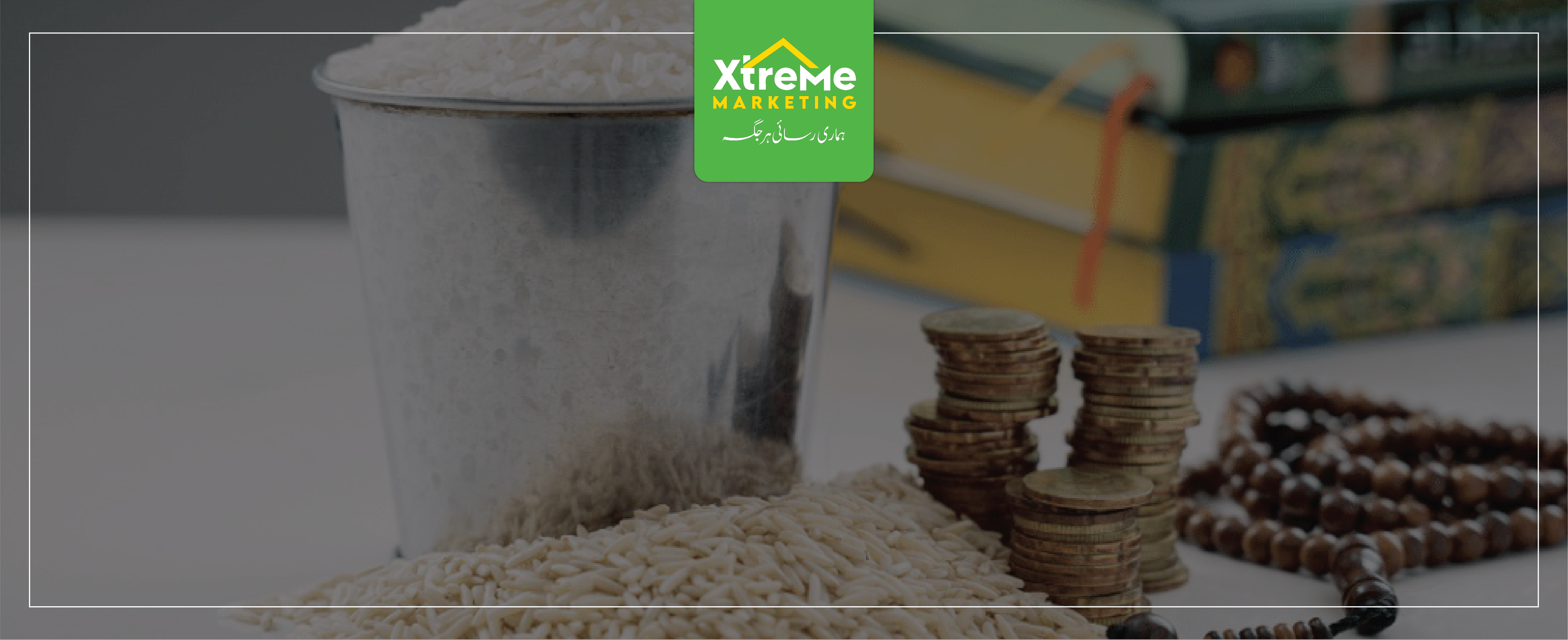
How to Calculate Zakat on Gold - Masarif e Zakat
How to Calculate Zakat on Gold - Masarif e Zakat
Introduction
Zakat is an essential pillar of Islam, and it is crucial for Muslims to fulfill their duty by giving Zakat each year. This guide provides a step-by-step procedure for calculating Zakat. Understanding these aspects will enable you to fulfill this religious obligation and contribute to the welfare of your community. In the realm of Islamic finance, understanding Zakat, especially when it comes to gold, is pivotal. Discovering the intricacies of Masarif e Zakat not only ensures compliance but also fosters a sense of social responsibility. Here’s an insightful guide on how to calculate Zakat on gold, navigating through the essentials with precision.
Things to Read Here:
- Understanding the Basics
- Navigating Masarif e Zakat
- Example Scenario
- Eligibility for Zakat - Sahib-e-Nisab
- Calculating Zakat on Gold
- Possession of Nisab
- Choosing the Appropriate Nisab - Gold or Silver
- Understand the local practice
- Refer to the Prophetic Tradition
- Consider the economic context
- Seek guidance from Scholars
- Zakat Calculater
- Determine the Eligibility
- Sample Calculation for Assets and Liabilities
- Distribution of Zakat - Recipients of Zakat
- Exceptions and Important Considerations
- How Can I Pay My Previous Year’s Zakah in Cash or Gold or Silver?
- Advantages of Paying Zakat
- Disadvantages of Not Paying Zakat
- Conclusion
What is the Meaning of Zakat?
Zakat, one of the five pillars of Islam, holds immense significance in nurturing economic equity and social welfare. Among its various forms, Zakat on gold stands out as a vital aspect, encompassing calculations deeply rooted in Islamic jurisprudence.
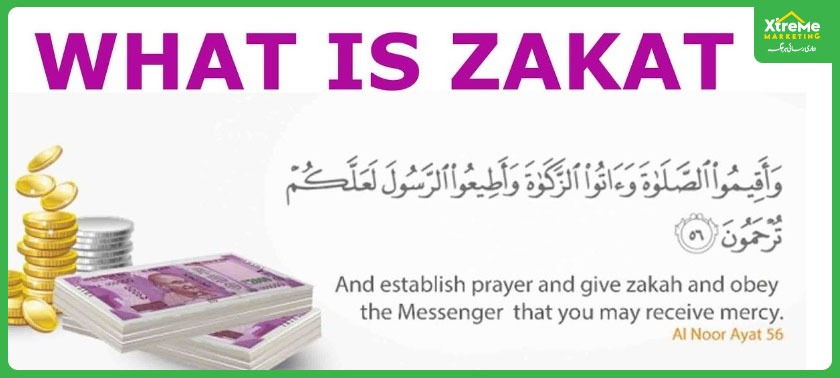
Passage of One Lunar Year
To be eligible for Zakat, a person's wealth must have been in their possession for a full lunar year (Hijri year). This means that if the wealth or assets have been in their possession for less than a year, Zakat is not obligatory on that amount.
Understanding the Basics
Before delving into the complexities of Zakat calculations, it’s crucial to grasp the fundamental concepts. Zakat on gold is obligatory for those who possess wealth beyond the specified threshold, known as Nisab, and it typically amounts to 2.5% of the total value of gold owned for a lunar year.
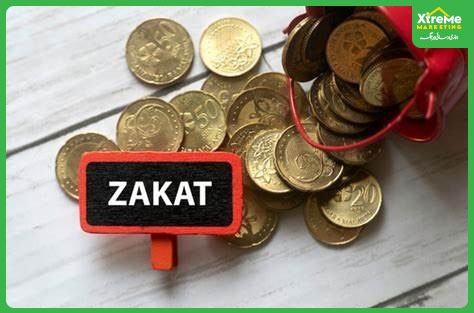
Navigating Masarif e Zakat
Masarif e Zakat, the guidelines governing Zakat calculations, outline the methodology for determining Zakat on gold. It involves assessing the current market value of gold and applying the prescribed Zakat rate to ascertain the payable amount.
Example Scenario:
Suppose an individual possesses 50 grams of gold with a current market value of PKR 10,000 per gram. Following the Zakat calculation formula, the Zakat payable would amount to PKR 1,250 (50 grams * PKR 10,000 * 2.5%).
Eligibility for Zakat - Sahib-e-Nisab
Sahib-e-Nisab refers to a person who possesses the minimum threshold of wealth or assets on which Zakat is due. The eligibility for Zakat, or being a Sahib-e-Nisab, is determined by meeting specific criteria.Here are the general guidelines:
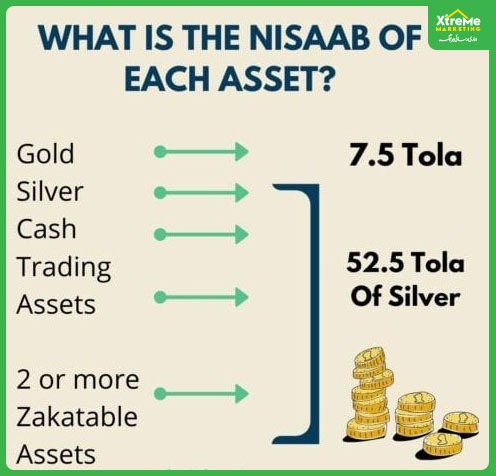
Calculating Zakat on Gold: Step-by-Step Guide
Step 1: Determine Gold Ownership:
Identify the gold assets owned, including jewellery, ornaments, or bullion, to initiate the calculation process.
Step 2: Assess Gold Value:
Obtain the current market value of gold per gram or ounce, ensuring accuracy in valuation.
Step 3: Calculate Total Gold Worth:
Multiply the weight of gold owned by its corresponding market value to derive the total value of gold assets.
Step 4: Determine Nisab Threshold:
Refer to the prevailing Nisab threshold to ascertain eligibility for Zakat payment.
Step 5: Compute Zakat Amount:
Apply the Zakat rate of 2.5% to the total value of gold assets to calculate the payable Zakat amount accurately.
What is Nisab
Nisab is the minimum amount of wealth or assets that a person must possess to be eligible for Zakat. It is typically based on the value of gold or silver. The Nisab value can vary over time and based on local economic conditions. It is important to consult with local scholars or reputable Islamic organizations to determine the current Nisab value.
Type of Assets
Zakat is generally applicable to various forms of wealth, including cash, savings, investment accounts, gold, silver, business assets, stocks, and agricultural produce, among others. However, specific rules and rates may vary depending on the type of asset. 
Choosing the Appropriate Nisab - Gold or Silver
When determining the appropriate Nisab value for Zakat, the traditional approach is to consider either the value of gold or silver. The choice between gold and silver is based on the prevailing customs and practices in a particular region or community. Here are some guidelines to help you choose the appropriate Nisab:
Understand the local practice
It is important to understand the prevailing practice in your area. This information can be obtained from local scholars, Islamic organizations, or by consulting knowledgeable individuals within your community
Refer to the Prophetic Tradition
The choice of gold or silver for calculating the Nisab is not explicitly mentioned in the Quran. However, there are Prophetic traditions (hadiths) that mention the Nisab value in terms of either gold or silver. For example, some hadiths state that the Nisab is equivalent to a certain weight of gold or silver. You can refer to these hadiths and consider the ones that are commonly accepted by scholars in your region.
Guidlines to Calculate Zakat
Calculating Zakat involves assessing one's assets and liabilities to determine the net worth on which Zakat is applicable. Here's a step-by-step guide for a sample calculation:
Determine the Eligibility
Ensure that you meet the criteria for being eligible to pay Zakat, including possessing the Nisab value and meeting the other requirements mentioned earlier.
List Your Assets
Make a comprehensive list of your assets, including cash, savings, investments, gold, silver, business assets, rental properties, and any other valuable possessions that fall under Zakat-eligible categories.
Assign Values to Assets
For gold and silver, use the prevailing market rates. For other assets like investments or business assets, consult with financial advisors or refer to the current market value. Note that for assets like rental properties, only the portion that is beyond one's basic needs is subject to Zakat.
Deduct Liabilities
Identify and list your liabilities, such as loans, debts, and outstanding obligations. Subtract the total value of your liabilities from the total value of your assets. The resulting figure is your net worth.
Calculate Zakatable Amount
The Zakatable amount is the net worth on which Zakat is applicable. If your net worth is above the Nisab threshold, you will need to pay Zakat. If it is below the Nisab, Zakat is not obligatory. It is essential to ensure that you have maintained the Nisab for a full lunar year before Zakat becomes due. Let's go through a sample calculation for assets and liabilities in Zakat using Pakistani Rupees (PKR). For illustration purposes, let's assume the following scenario:
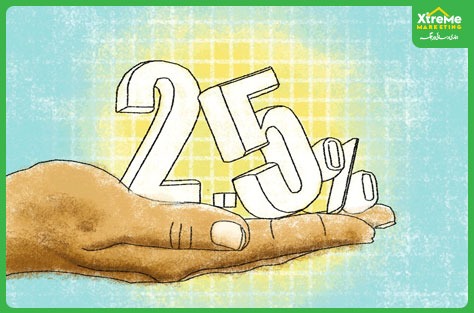
1. Assets
- Cash: PKR 100,000
- Savings Account: PKR 200,000
- Gold: 50 grams (valued at PKR 300,000)
- Investment Account: PKR 400,000
- Rental Property: PKR 2,000,000 (beyond basic needs)
2. Liabilities
- Mortgage Loan: PKR 1,500,000
- Outstanding Debt: PKR 50,000
Now, let's calculate the Zakatable amount:
Step 1: List Your Assets
- Cash: PKR 100,000
- Savings Account: PKR 200,000
- Gold: PKR 300,000
- Investment Account: PKR 400,000
- Rental Property: PKR 2,000,000
Step 2: Assign Values to Assets
The total value of assets is PKR 3,000,000 (PKR 100,000 + PKR 200,000 + PKR 300,000 + PKR 400,000 + PKR 2,000,000).
Step 3: Deduct Liabilities
The total liabilities amount to PKR 1,550,000 (PKR 1,500,000 + PKR 50,000). The net worth (Zakatable amount) is calculated by subtracting liabilities from assets: PKR 3,000,000 - PKR 1,550,000 = PKR 1,450,000.
Step 4: Calculate Zakat Amount
Assuming a Zakat rate of 2.5%, we apply it to the Zakatable amount:
- Zakat amount = 2.5% of PKR 1,450,000.
- Zakat amount = PKR 36,250
Step 5: Distribute Zakat
The calculated Zakat amount of PKR 36,250 should be distributed to eligible beneficiaries according to Islamic guidelines, such as the poor, needy, debtors, and others in need.Please note that this is a simplified example, and the actual calculation can involve more complex factors, varying rates for specific assets, and additional considerations based on personal circumstances and local customs. It is always recommended to consult with knowledgeable scholars or reputable Islamic organizations for accurate and specific guidance tailored to your situation and the prevailing Zakat rates in Pakistan.

Determine the Zakat Rate
There are specific considerations and varying rates for different types of assets. Here are some guidelines to help you determine the Zakat rate:
1. Cash, Savings, and Investments
The Zakat rate for cash, savings, and investment accounts is typically 2.5%. This means that 2.5% of the total value of these assets is due to Zakat.
2. Gold and Silver:
The Zakat rate for gold and silver is also 2.5%. However, the weight of gold and silver that determines the Nisab threshold may vary based on local customs or practices.
3. Business Assets
Generally, business assets that are held for trading purposes, such as inventory or merchandise, are subject to a Zakat rate of 2.5%.
4. Agricultural Produce
Commonly, the Zakat rate for agricultural produce is around 10% for irrigated land and 5% for rain-fed or non-irrigated land.
Masarif e Zakat
Discover the eight categories of people specified in the Quran who are considered rightful recipients of Zakat. We explain the importance of giving Zakat to those in need and provide guidance on whom to distribute your Zakat to in your community. Zakat is primarily intended to provide support and assistance to specific categories of individuals who are considered eligible recipients according to Islamic teachings. The recipients of Zakat are defined in the Quran (9:60) and through the Prophet Muhammad S.A.W teachings. Here are the main categories of recipients:
1. The Poor (Al-Fuqara')
These are individuals who lack the means to meet their basic needs due to poverty or financial hardship.
2. The Needy (Al-Masakin)
These are people who are also in financial need but may have slightly more resources than the poor.
3. Zakat Administrators (Al-Amilin)
Individuals or organizations involved in the collection, distribution, and management of Zakat funds. They are responsible for ensuring proper distribution to eligible recipients.
4. Those Whose Hearts are to be Reconciled (Al-Mu'allafah-Qulubuhum)
Individuals who have recently converted to Islam or individuals who are inclined towards Islam and can be supported with Zakat funds to strengthen their faith and reconcile their hearts.
5. Captives and Slaves (Al-Riqab)
This category refers to individuals held in bondage or those who need assistance to gain their freedom.
6. Debtors (Al-Gharimin)
Individuals who are burdened with debt and are unable to repay their loans. Zakat can be used to help alleviate their debt.
7. In the Cause of Allah (Fi Sabilillah)
This category includes individuals or activities related to the defense of Islam, the propagation of the faith, or other charitable causes that serve the greater good of the Muslim community. It's important to note that Zakat should be given with the intention of seeking Allah's pleasure and should be distributed directly to eligible recipients.
Exceptions and Important Considerations
This section covers exceptions to Zakat distribution, including organizations, non-Muslims, and direct dependents. We emphasize the importance of ensuring that the Zakat recipient gains full ownership of the amount.

While Zakat is generally obligatory for eligible Muslims, there are some exceptions and important considerations to keep in mind. Here are a few exceptions and considerations in Zakat:
1. Non-Muslims
Zakat is specifically designated for Muslims, and it is not obligatory on non-Muslims. However, Muslims can provide voluntary charity (Sadaqah) to non-Muslims if they are in need or for fostering good relations.
2. Children
Zakat is not obligatory on children who have not reached the age of puberty. However, parents can voluntarily give Zakat on their behalf if they wish to do so.
3. Zakat for Personal Debts
Personal debts, such as credit card debts or mortgage loans, are not deductible from the Zakatable amount. Zakat is calculated on the net worth (assets minus liabilities) rather than on the basis of personal debts.
4. Zakat on Business Debts
If a person has given a loan to someone, and the debtor is unable to repay the loan, the outstanding loan amount can be deducted from the Zakatable amount. In such cases, only the remaining amount is considered for Zakat calculation.
5. Fixed Assets
Fixed assets, such as a primary residence, personal vehicles, or household items, are generally not included in the Zakatable amount. These assets are not considered for Zakat unless they are intended for sale or business purposes.
6. Personal Use Assets
Assets that are for personal use and not intended for trade or investment, such as personal jewelry, clothing, furniture, and other items, are typically exempt from Zakat calculation.
7. Calculation of Zakat on Investments
The Zakat calculation for investment assets, such as stocks, mutual funds, or business partnerships, can be complex. It is advisable to consult with knowledgeable scholars or financial experts who can provide guidance on the specific rules and calculations for Zakat on investments.
8. Cultural and Regional Considerations
Zakat practices can vary across different cultures and regions due to local customs and interpretations. It is important to consider the specific guidelines and practices followed in your region and consult with knowledgeable individuals or Islamic organizations for accurate information.
How Can I Pay My Previous Year’s Zakah in Cash or Gold/Silver?
If you have missed paying your previous year's Zakat and wish to fulfill that obligation, you have a few options to do so:
1. Cash Payment
Determine the Zakatable amount based on the value of your cash holdings at the time Zakat was due, and calculate 2.5% of that amount. Pay the calculated Zakat amount in cash to eligible recipients.
2. Gold/Silver Payment
If you missed paying Zakat on gold or silver, you can calculate the Zakat amount based on the weight and value of those assets. Multiply the weight by the current market rate, and calculate 2.5% of that amount. Pay the calculated Zakat amount in gold or silver to eligible recipients.
3. Equivalent Cash Payment
If you prefer to pay the missed Zakat in cash rather than gold or silver, you can calculate the equivalent value based on the current market rates of gold or silver. Determine the weight of gold or silver you possessed at the time Zakat was due, multiply it by the current market rate, and calculate 2.5% of that amount. Pay the calculated equivalent cash amount to eligible recipients.
When paying your missed Zakat, it is important to ensure that you distribute the funds to eligible recipients according to the categories mentioned earlier. This can be done by identifying local charitable organizations or individuals in need who can distribute the Zakat on your behalf. It is advisable to consult with knowledgeable scholars or reputable Islamic organizations to ensure proper distribution and adherence to Islamic principles. Remember that it is always better to pay Zakat on time to fulfill your obligation promptly. However, if you have missed paying Zakat, it is commendable to rectify the situation and fulfill your duty as soon as possible.
Advantages of Paying Zakat
Paying Zakat, as a form of obligatory charity in Islam, offers several advantages and benefits both for individuals and society as a whole. Here are some key advantages of paying Zakat:
1. Fulfilling Religious Obligation
Paying Zakat is an essential pillar of Islam and a means of fulfilling a religious obligation. It is considered an act of worship and a way to demonstrate obedience to Allah's commandments. By fulfilling this duty, individuals strengthen their faith and enhance their spiritual connection with Allah.
2. Purification of Wealth
Zakat serves as a means of purifying one's wealth. It helps to cleanse and purify the assets that one possesses by removing the portion that is due as Zakat. This purification can promote gratitude, contentment, and a sense of detachment from material possessions, fostering a balanced and moderate approach to wealth.
3. Economic Redistribution
Zakat plays a vital role in redistributing wealth within society. It helps to bridge the gap between the rich and the poor, addressing social inequalities and promoting a more equitable distribution of resources. By supporting the needy and less privileged, Zakat contributes to poverty alleviation and social welfare.
4. Alleviating Financial Hardships
Zakat provides direct assistance to individuals and families who are in financial need or facing hardships. It helps to meet their basic needs, such as food, clothing, shelter, healthcare, and education. By providing this support, Zakat can alleviate the financial burdens faced by the less fortunate and enhance their well-being.
5. Strengthening Social Cohesion
The practice of Zakat fosters a sense of community and solidarity among Muslims. It promotes compassion, empathy, and a spirit of caring for others. By giving Zakat, individuals contribute to building a stronger, more cohesive society based on mutual support and compassion for those in need.
6. Personal Growth and Gratitude
Paying Zakat encourages personal growth and character development. It cultivates qualities such as generosity, humility, and gratitude. It reminds individuals of the blessings they have been bestowed with and encourages them to share those blessings with others in need.
7. Reward and Blessings
If you prefer to pay the missed Zakat in cash rather than gold or silver, you can calculate the equivalent value based on the current market rates of gold or silver. Determine the weight of gold or silver you possessed at the time Zakat was due, multiply it by the current market rate, and calculate 2.5% of that amount. This can be done by identifying local charitable organizations or individuals in need who can distribute the Zakat on your behalf. Remember that it is always better to pay Zakat on time to fulfill your obligation promptly.
Disadvantages of Not Paying Zakat
Paying Zakat, as a form of obligatory charity in Islam, offers several advantages and benefits both for individuals and society as a whole. Here are some key disadvantages of not paying Zakat:
1. Neglecting a Religious Obligation
Not paying Zakat means neglecting a fundamental religious obligation in Islam. It goes against the teachings of the Quran and the example set by the Prophet Muhammad (SAW). Neglecting this duty can result in a weakened spiritual connection and a sense of guilt or remorse.
2. Financial Implications
By not paying Zakat, individuals miss out on the opportunity to purify their wealth and seek blessings in their financial matters. Neglecting Zakat can result in a buildup of wealth that is not used for the betterment of society or the fulfillment of societal needs. It can lead to a sense of attachment to material possessions and a lack of contentment.
3. Social Inequalities
Zakat plays a crucial role in addressing social inequalities and promoting a more equitable distribution of resources. By not paying Zakat, individuals contribute to the persistence of wealth disparities and social divisions. This can lead to social unrest, resentment, and a lack of social cohesion within communities.
4. Impact on the Needy
Zakat serves as a means of providing support and assistance to those in need. By not paying Zakat, individuals deprive the less fortunate of the help they require. It can result in increased financial hardships for vulnerable individuals and families who depend on Zakat for their basic needs.
5. Missed Opportunities for Personal Growth
Paying Zakat offers opportunities for personal growth and character development. It cultivates qualities such as generosity, empathy, and gratitude. By not fulfilling the obligation of Zakat, individuals miss out on these opportunities for personal and spiritual development.
6. Accountability in the Hereafter
Islam emphasizes the concept of accountability in the Hereafter. Neglecting the obligation of Zakat can lead to questioning and potential consequences in the afterlife. It is considered a form of disobedience to Allah's commandments and can impact an individual's standing and reward in the Hereafter.
Conclusion
Zakat is not just a religious obligation; it is a means of helping the less fortunate and purifying one's wealth. By following this detailed guide, you can easily calculate your Zakat for 2023 and make a positive impact on the lives of those in need.By neglecting this duty, individuals miss out on the numerous benefits and blessings that come with fulfilling Zakat. It is advisable to seek knowledge, guidance, and support from knowledgeable scholars or reputable Islamic organizations to ensure compliance with Zakat obligations and to fulfill this important pillar of Islam. Our experts can address common questions related to Zakat, including eligibility, determining Sahib-e-Nisab status, converting Nisab, future assets, personal use items, savings for religious purposes, exclusion of future liabilities, and more. In essence, mastering the art of calculating Zakat on gold is not merely a financial endeavour but a profound expression of faith and compassion. By embracing Masarif e Zakat and adhering to its principles diligently, one contributes significantly to the welfare of society, fostering a culture of generosity and equity. Embark on your Zakat journey today, enriching both your spiritual and material realms, as you navigate through the realms of Islamic finance with wisdom and compassion.
FAQS
Question: What is Zakat on Gold?
Answer: Zakat on gold is a mandatory form of charity in Islam, where individuals who possess wealth above a certain threshold (Nisab) are required to give 2.5% of their gold assets as Zakat.
Question: How is Zakat on Gold Calculated?
Answer: To calculate Zakat on gold, determine the total weight of your gold assets, multiply it by the current market value per gram or ounce, and then apply the Zakat rate of 2.5%.
Question: What is Masarif e Zakat?
Answer: Masarif e Zakat refers to the guidelines governing Zakat calculations, outlining the methodology and principles for determining Zakat obligations, including Zakat on gold.
Question: Where Can I Find the Current Market Value of Gold?
Answer: You can find the current market value of gold from reputable sources such as financial websites, gold markets, or through a trusted jeweler.
Question: Is There a Zakat Calculator Available?
Answer: Yes, there are several Zakat calculators available online that can help you accurately determine your Zakat obligations, including Zakat on gold.
Question: What Happens If I Don't Pay Zakat on Gold?
Answer: Failing to pay Zakat on gold when eligible is considered a violation of Islamic principles and may lead to spiritual consequences. It's essential to fulfill Zakat obligations for both spiritual purification and social welfare.
Question: Can I Deduct Zakat from My Current Account?
Answer: Yes, you can deduct Zakat from your current account if it meets the Nisab threshold and if it's held for investment purposes.
Question: How Often Should Zakat on Gold be Paid?
Answer: Zakat on gold should be paid annually, following the completion of one lunar year from the time the gold assets reached the Nisab threshold.
Question: What is the Minimum Amount of Gold Required to Pay Zakat?
Answer: The minimum amount of gold required to pay Zakat, known as Nisab, is equivalent to the value of 87.48 grams of gold.
Question: Can I Receive Zakat If I Am in Need?
Answer: Yes, individuals who meet the criteria of eligibility for receiving Zakat can receive assistance from Zakat funds for their essential needs.
Projects By Xtremes Marketing
Property Agents in Pakistan
- Expert Property Dealers in Lahore
- List of Property Dealers in Islamabad
- List of Property Dealers in Peshawar
- Illegal Housing Societies in Gujranwala
- Illegal Housing Societies in DI Khan
- Top 11 Real Estate Agencies in Karachi: Projects & Services
- Approved Housing Societies In Peshawar Town - II
- Approved Housing Societies in Nowshera By TMA - Redefining Modern Living
- Navigating Success: The Top Sales Agents and Property Dealers in Karachi, Pakistan
- Trending List of Illegal Housing Societies in Lahore by LDA
- Approved Housing Society In Mardan By TMA
- Red Alert - Notice Issued to Owners of Six Illegal Housing Societies in Rawalpindi
- Breaking News - FIR Lodged Against Illegal Housing Societies in Rawalpindi by RDA
- 8 New Mega Projects by FGEHA Developers
- SBCA Illegal Properties List 2023
- LDA Approved Housing Schemes
- Top 6 Mega Infrastructure Projects in Karachi
- Top 11 Real Estate Companies in Peshawar
- List of In-Process Housing Schemes by PHA in Khyber-Pakhtunkhwa (K-P)
- Rise in Demand for Flats in Karachi: A User-Friendly Guide
- Top Rated 17 Best Real Estate Investment Companies – Reliable & Professional
- A completed list of housing societies in Karachi scheme 45
- No Objection Certificate (NOC) in Real Estate
Lifestyle & General
- Best Hospitals in Pakistan
- Top 10 International Schools in Lahore
- How to Start Real Estate Business in Pakistan
- NADRA's Online Portal for CNIC Verification in Pakistan
- Unlocking Agriculture in Pakistan: Types and Strategies
- Top 10 Restaurants in Swat to Delight Your Taste Buds
- Top 10 Places To Visit In Gilgit-Baltistan
- Calculate Zakat 2023 Guide
- Xtremes Marketing: Empowering Real Estate Business and Customers in Pakistan
- Top 10 Schools In Peshawar
- Top 10 Apartments in Peshawar: Luxurious Living in the Heart of the City
- Discover the Authentic Flavors: Top 10 Best Restaurants in Peshawar
- Unleash Your Real Estate Superpowers: Elevating Your Customer Service Skills
- 10 Unconventional Pre-Listing Home Improvements That Buyers Can't Resist
- Vertical Cities in Pakistan: Advantages, Housing Solutions, and Future Prospects
- List of Registered Housing Societies in Karachi
- How to Register Real Estate Company in Pakistan
- How to Check Property Documents in Karachi
Housing Societies & Projects
- Pakistan Employees Cooperative Housing Society (PECHS)
- Safari Garden Lahore
- Zaraj Housing Society
- Ghauri Town Islamabad
- Urban City Lahore
- Damaan City Lahore
- Unveiling the Illegality
- List of Approved Housing Societies in Multan by MDA
- Citi Housing Kharian: A Serene Abode of Modern Living
- Bahria Town vs. Citi Housing Peshawar: A Comprehensive Comparison
- Bahria Town Peshawar
- Kalam Valley Housing Scheme: Discover the Serene Living Experience
- Delight City Mardan: Your Gateway to an Ideal Lifestyle
- Countryside Residencia - New Location, Masterplan, & Payment Plan
- Blue World City (BWC)
Special Discount Offer